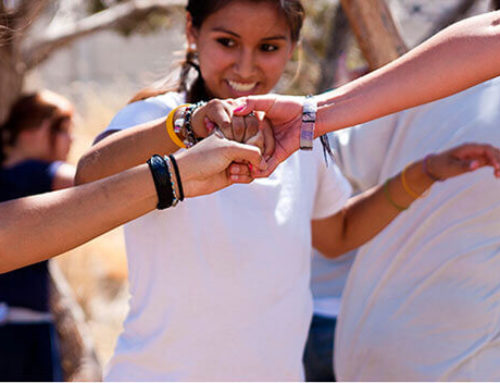Reframing Attitudes towards Transition and Relapse
When your daughter is finishing her process at residential treatment there is so much to celebrate! She has worked so hard through emotional pain to get to know herself in a new healing and healthy way. She has been uncomfortable, surprised, and relieved many times through her journey, and I’m sure you have as well. At Sunrise RTC specifically, she has worked hard to learn, practice, and understand Dialectal Behavioral Therapy (DBT) skills in order to work though emotional dysregulation on her own. In her final days at RTC and her first days at home, there will be intense joy. You and she will be so pleased to start this next journey of your lives!
And guess what… she is still a human. You are still a human. Both of you are going to slip up every once in awhile. This blog is written to share a new perspective on relapse, to help minimize shame and fear around relapse, and to provide a resource on how to prepare for relapse.
Relapse is not a matter of if…but…when. It will happen, and that’s ok! Relapse is a pattern of mistakes or momentary lapses in skills.
So again, I repeat. Relapse will happen, but it will not be the end of the world. Especially if you prepare. Here is a step-by-step guide to preparing for lapses in skills and for relapse, and which DBT Skills to use along the way!
Step 1: Identifying How Far We Have Come
Old habits die hard, especially during emotionally difficult times. This step allows us to take the time to review the progress that has been made and to remember how far you’ve come, how you did it, how to keep progressing, and how to get back on tack when lapse occurs.
- What has changed in the way your family relates to each other?
- How are the roles and boundaries different?
- How does each person think they have changed?
Step 2: Identifying How Relapse Can Happen
The following is a very common path to relapse, but understand that it doesn’t have to flow in this particular order, and can be disrupted at any time especially with the help of DBT skills:
-
- Trigger: people, places, thoughts, emotions
- Pre-Contemplation: imagining, fantasizing
- Contemplation: distorted thinking
- Determination: planning, preparing
- Action: lapse, relapse event
- Maintenance: full relapse
Step 3: How to Prepare for Relapse
- Triggers: The key here is to prepare for the obstacle without fearing the failure which takes a decent amount of awareness. When you or your daughter are able to mindfully identify your triggers you gain insight into and understanding of how to avoid, accept, or change them for the better.
- Related DBT Skills: Mindfulness, ACCEPTS
- Pre-Contemplation: Once faced with triggers, you or your daughter will begin to imagine or fantasize about experiencing old behaviors.
-
- Related DBT Skills: Pros and Cons, GIVE, Life Worth Living Activities, Healthy Social Supports, ABC PLEASE
- Contemplation: You or your daughter think more about the old behaviors and their possibilities. You begin to experience irrational beliefs, cognitive distortions, and rationalizations. Here, it is important to challenge the black and while thinking.
-
- Related DBT Skills: Pros and Cons, Opposite Action, Walking the Middle Path, ABC PLEASE
- Determination: You or your daughter begin to plan ways to create opportunities to return to old behaviors. Here, honest communication becomes crucial. It is important to interrupt planning by being vulnerable and speaking about what you are actually thinking and feeling
-
- Related DBT Skills: Family Communication Plan, DEAR MAN, FAST
- Action: In this stage you or your daughter begin to act out old, unhealthy behaviors. Here, the family unit and anyone else involved, like a therapist or counselor, can help the individual identify the behaviors as well as what skills can be used to prevent or counteract negative decisions or patterns.
-
- Related DBT Skills: ABC PLEASE, Wise Mind
- Maintenance: This is when you or your daughter have begun to act out trouble behaviors and are maintaining these behaviors. Here, it is important to identify the specific people, places, words, etc. that can help you realize that a relapse has occurred, what skills and supports are necessary, and what you can do to learn from the relapse.
-
- Related DBT Skills: Denial Interruption, FAST, Family Communication Plan
Through this inevitable process, it is so important to know the relapse is NOT a failure. Relapse IS an opportunity to grow in yourself and as a family unit!
This is an adaptation of a presentation by Sunrise Residential Treatment staff Alexana Stavros, Transition Coordinator and Amanda McNatt, Senior Residential Director




